It’s an unfortunate fact of life that most people tend to focus more on their flaws and shortcomings than on their virtues and successes. While this may be true, the waters are life are easier to navigate if you can serve as an ally to yourself, rather than constantly putting yourself down–so, read on to discover 6 techniques to stop being your own worst critic!
- What is Toxic Self-Criticism, and Why Does it Occur?
- Theories On Why & How People Are Self-Critical
- 6 Ways to Become a Better Ally to Yourself
- 1. Evaluate Your Internal Monologue
- 2. Stay Positive!
- 3. Emphasize the Actionable
- 4. Know Thyself
- 5. Trust the People Around You
- 6. Have Faith in Yourself
- Conclusion
- Online Mental Health Resources
- Outfit Rundown
Whether it’s something like failing a test at school, making a significant mistake in the workplace, or simply embarrassing yourself in front of others, negative situations tend to take up a disproportionate amount of space in our own thoughts. When obsessing over your shortcomings leads to a negative self-image, this can lead to a vicious cycle of toxic self-criticism, where you’re focusing solely on your shortcomings or mistakes and not seeing things that are positive about you.
One Important Note Before We Begin
With all that in mind, we are going to be covering some topics today that involve matters of serious mental health. While we’re going to be sharing what we believe is our best advice, do keep in mind that we’re not medical professionals. If you’re looking for help or treatment in relation to mental health concerns, we’ve included some links down below. Be sure to always consult a medical professional first if you have serious concerns.
What is Toxic Self-Criticism, and Why Does it Occur?
The American Psychological Association defines self-criticism most broadly as the evaluation of one’s own behavior and attributes with recognition of one’s weaknesses, errors, and shortcomings. But, one of the most pernicious aspects of self-criticism is that it isn’t inherently a bad thing.
In other words, when self-criticism is applied reasonably and in pursuit of making ourselves better and learning how we can grow, it can be a positive thing. This type of self-criticism is sometimes known as “constructive self-criticism,” and it’s closely related to the concept of self-compassion, which is the tactic of dealing with your own shortcomings or flaws in a compassionate manner.
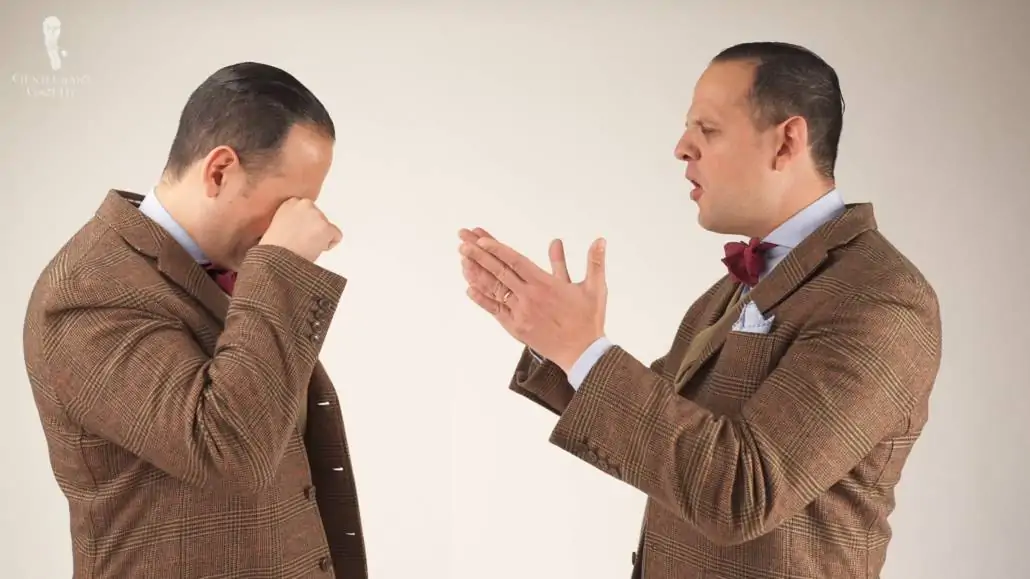
When your self-criticism becomes cruel or hurtful though, this is the point at which it stops being a help and becomes a hindrance. Medical science isn’t yet clear on why self-criticism affects people differently.
Theories On Why & How People Are Self-Critical
One theory is that people who grew up in an environment where they were excessively criticized by others may have developed excessive self-criticism as a defense mechanism of sorts. In other words, they may have utilized self-criticism as an additional motivator to avoid failure and, thereby, avoid external criticism.
Meanwhile, some evolutionary psychologists hold that self-criticism was actually a survival technique at the outset. After all, when our primitive ancestors encountered failure, this was usually in the realm of things like death, disease, or injury. So, it could be beneficial for our brains to over-exaggerate negative impulses in order to avoid them in the future.

Obviously, though, this vestigial survival skill doesn’t serve us well in the modern-day as we’re now constantly bombarded by different impulses that don’t present any mortal danger to us. And it’s important to point out that self-criticism can often be harmful for men, in particular, since broader society often judges us by our achievements, wealth, or influence. Therefore, failure would be seen as a sign of weakness, ineptitude, or incompetence – or at least that’s the theory that some hold.
Many men, though, refuse to deal with the concept of toxic self-criticism because they believe that they couldn’t separate their fear of failure from their achievement of success. In point of fact, a 2016 study by psychologists at UC Berkeley found that the opposite was actually true; individuals motivated primarily by a fear of failure and shame tended to be less likely to experience personal growth and new accomplishments than those who practiced self-compassion.
6 Ways to Become a Better Ally to Yourself
How, then, can the modern man ensure that he doesn’t fall into the trap of toxic self-criticism while also still holding himself to the high standards of a gentleman? As we’ve said, self-improvement is a lifelong journey but with that in mind, here are some tips we believe can be used as good starting points.
1. Evaluate Your Internal Monologue
The primary starting point here would be to evaluate your internal monologue. In other words, listen to that little voice in the back of your head that interprets and tells you of all of your different goings-on throughout the day. Your internal monologue, though, is much more than just a personal narrator as it also gives you the tools for self-reflection, problem-solving, and framing the world around you.
Let’s consider the following example of a man who’s just given a lackluster presentation at work, and he isn’t feeling very good about how it went. A negative self-criticism would be, “I’ve always been a terrible public speaker and I always will be.”
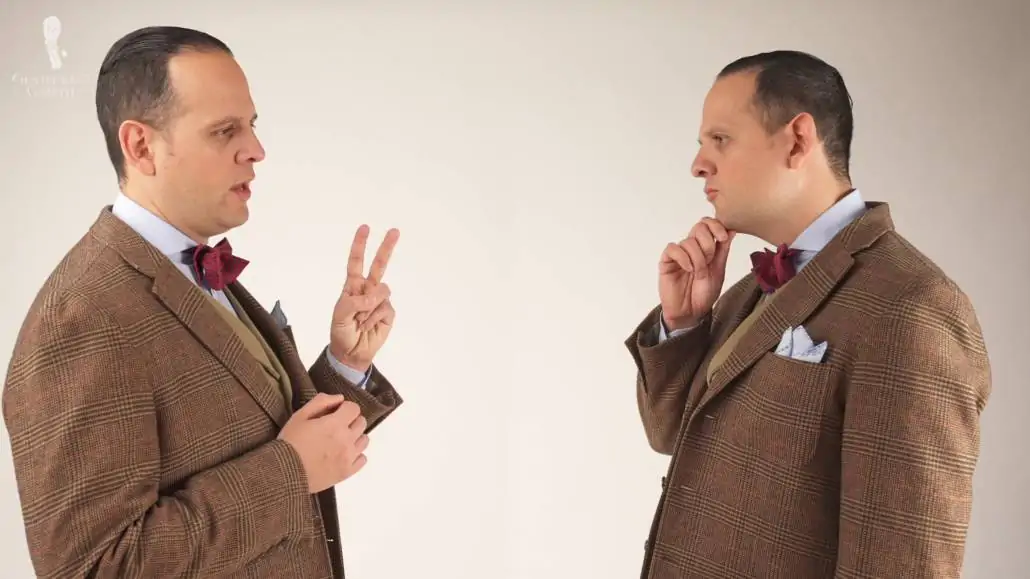
Meanwhile, the next example is a bit less critical: “I kept stumbling through my prepared statements. Instead of binging that show, I really should have practiced my lines last night. Maybe then, I would have been better.”
While the variations in your internal monologue are probably going to be more nuanced than this, hopefully, the two examples made things abundantly clear. The fundamental distinction, then, is whether you confront failure with a positive or negative response and how you proceed forward from there.
2. Stay Positive!
Having experienced a failure or setback, an individual with high standards is probably going to feel dejected about it and have a more difficult time remaining positive. However, indulging in this kind of thought can create a spiral of self-doubt and self-loathing that, ironically enough, sets you up for more failure in the future.
Alternatively, out of a desire to be more constructive, we might immediately try to concoct various theories about how failures could have been avoided and how we could have done things differently. However, this approach can also be counterproductive.
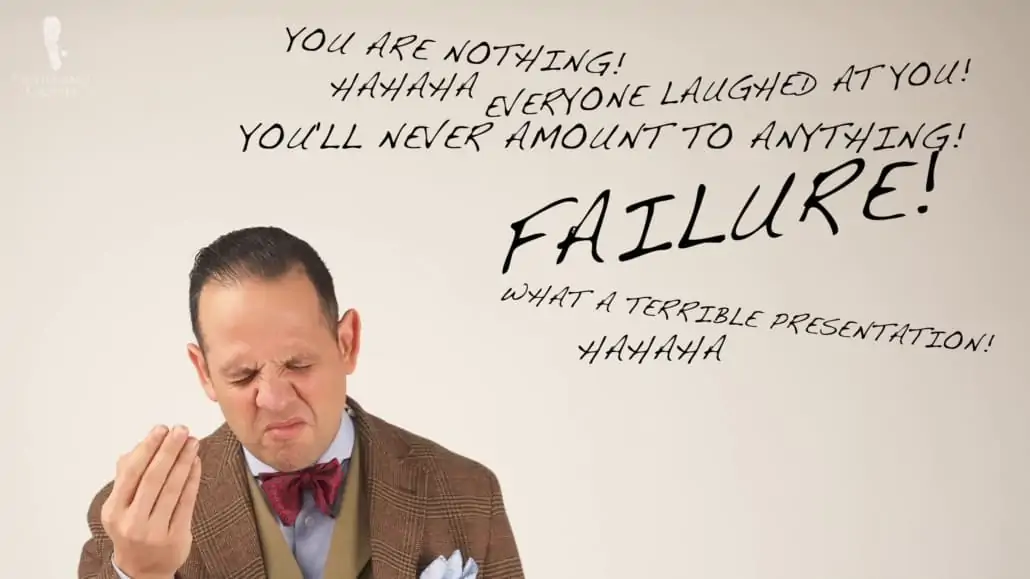
Some behaviorists have found that trying to analyze and rationalize a failure immediately after it occurs will only lead to more self-doubt. Because, at that moment, you lack the perspective necessary to actually interpret things holistically. What these experts suggest then is that we should identify and directly engage with our emotions relative to the occurrence.
As we also mentioned in our post on seven societal lies, men are often encouraged to be stoic and to tamp down their emotions. But, a better course of action when you’re feeling a strong emotion is to step back and ask yourself why you’re feeling that way. If you can analyze and understand these emotions, it will lead to a broader sense of self and a more fertile ground for self-improvement.
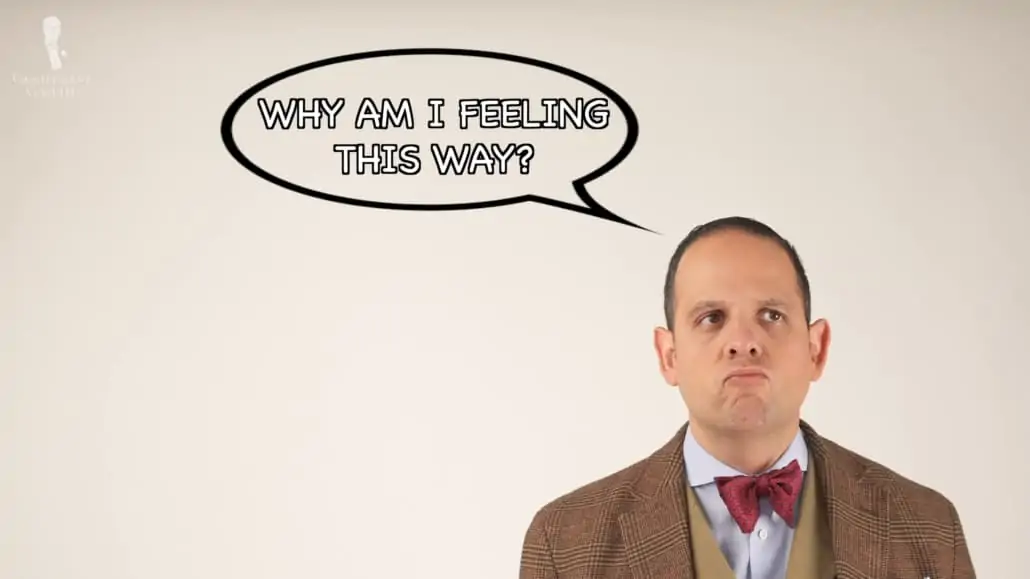
This doesn’t simply mean further compounding these emotions, however. When you do happen to feel sad, it is okay to engage in activities that will make you feel happier like spending time with friends, taking a walk outdoors, and so on. While these activities may temporarily distract from a failure, that is okay, because as we said before, we always need a certain amount of time and emotional distance in order to evaluate a problem fully.
3. Emphasize the Actionable
In some cases, of course, it is actually the case that problems stem from things that can’t be changed, and in these situations, what’s best is to work through your emotions, let things go, and move on; focusing instead on things that can be changed. However, toxic self-criticism can actually blind us to the influence we can have on different matters; making us think that we can’t change them when, in fact, we do have some degree of control.
Let’s consider another example. This time in the realm of a persistent personal flaw: “I’ll never have any real friends because I’m awkward, and no one wants to be friends with me.”

Not only does this first framing do nothing to improve the situation, but it also sets up the idea that the person is inherently incapable of establishing emotional connections with others.
Instead, the following framing acknowledges the problem but, also, presents a solution: “I guess I can’t make friends if I don’t try to meet new people first. I enjoy being around other people. So, when I try to meet new people, I’ll just have to do my best to make them feel comfortable and appreciated.”
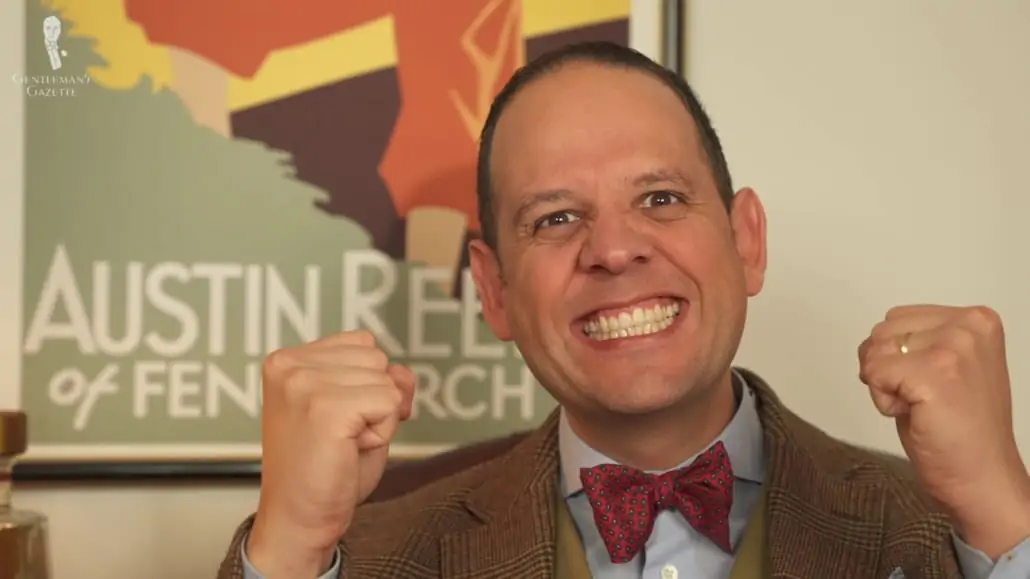
As a matter of fact, if you’re struggling with this particular problem, we’ve also created a separate guide on how to make friends as an adult, which you may find helpful. This idea of framing may seem like a small thing but, in fact, psychologists have found that having a positive outlook will help you to focus on the things you can improve, rather than the ways in which you’ve failed.
4. Know Thyself
An overly rosy outlook isn’t going to be helpful to you either, which is why it’s important to have an accurate and realistic self-assessment. In other words, for our next tip here: know thyself.
Too often it is assumed that thinking positively is synonymous with wishful thinking, but this isn’t the case. Positive thinking actually requires pairing a keen awareness of yourself and your own limitations with the aspiration and the drive to do better. But, of course, you can’t critically evaluate and improve yourself without first understanding yourself.
Attempting to really understand yourself then is known as “self-assessment,” and it involves evaluating one’s perceptions, values, actions, and abilities. Again, self-assessment for many men is often closely tied to their performance at school or work. But, how you interact with family, friends, and society at large is also an important component of self-assessment.
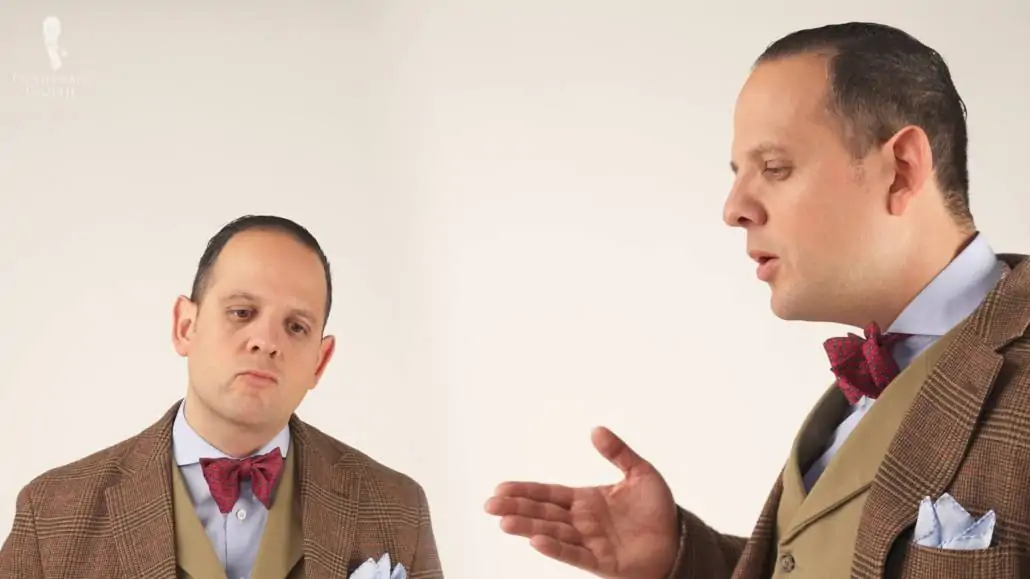
Remember that toxic self-criticism distorts your worldview and makes it harder to assess yourself fairly and accurately, so try to be objective and don’t allow baseless personal assumptions or biases to cloud your own judgment.
Some people find it easier to perform this exercise if they pretend to be someone else while evaluating themselves. This is called “self-distancing,” and it can be particularly helpful to break out of a self-loathing rut. Remember that few things that are truly worth doing are easy, so you should allow yourself to fail a few times in order to understand where your weaknesses are and how you can improve.

Finally here, when evaluating yourself, keep in mind that whatever faults and failures you may have are not an intrinsic part of who and what you are. Your negative traits, whatever they may be, might stem from your personality but you don’t have to let them define you. They can always be corrected or, at least, mitigated given the proper amount of time and effort.

When you’re figuring out your way forward, though, do remember to be realistic and reasonable. You can’t expect for your faults to be resolved instantly or for problems to go away overnight. As we’ve mentioned before, constructive self-criticism and self-improvement are daunting tasks. So, it can be helpful to have a trusted advisor or confidant to help you through it. As an example, you could consider our content where Raphael talks to Teresa about some of his own shortcomings and how he might be able to work through them.
5. Trust the People Around You
Our penultimate point for today is to trust the people around you. While self-criticism is inherently an internal trait, it can both impact and be impacted by others around you.
When seeking to better understand ourselves then, the perspectives of those who know us best can be helpful in determining what is good about ourselves and what we might consider changing. However, the desire to be self-critical can also cause us to unfairly judge ourselves relative to others or to become paranoid about what others really think of us.

Toxic self-criticism and self-doubt can also lead us to believe that we’re a burden to others and that they must resent us for all of our failures and what we cause to them. This may stem from the fact that people are often more likely to judge their own work much more harshly than they would judge the work of others, and while it is good to have high standards, unfair or unrealistic standards aren’t going to help anyone and may actually lead to more problems overall.
So, for example, if you’re assessing your contributions to a work or school project, remember to ask yourself: Would I be as critical of these contributions if they were made by someone else? If you can be understanding of someone else’s shortcomings, then you can certainly be understanding of your own.

Sometimes, these feelings can be associated with so-called “imposter syndrome,” which is a common psychological pattern in which one doubts one’s accomplishments and abilities and is convinced that others will eventually discover or find out all of these inadequacies. The best way to combat imposter syndrome then is to have genuine confidence, and because many people who suffer from excessive toxic self-criticism also believe that their friends, family, or romantic partners secretly dislike them.
A similar outlook should also be employed in social relationships as well. Remember that, in most cases, if people truly didn’t like you, they wouldn’t be associating with you in the first place. So, we must trust other people in order to overcome the feelings that toxic self-criticism can give to us. Trust your peers to work well with you, trust your friends to like you, and trust your confidants and family to care for you.
6. Have Faith in Yourself
And finally, if you are going to trust other people, you should trust yourself as well, which brings us to our final main tip for today: have faith in yourself.
Something we’ve mentioned multiple times here is the ability to give yourself frank and honest assessments. But, in order to be able to do this, you have to trust yourself first, trust yourself to be satisfied when you succeed, and trust yourself to be able to recognize your own positive qualities.
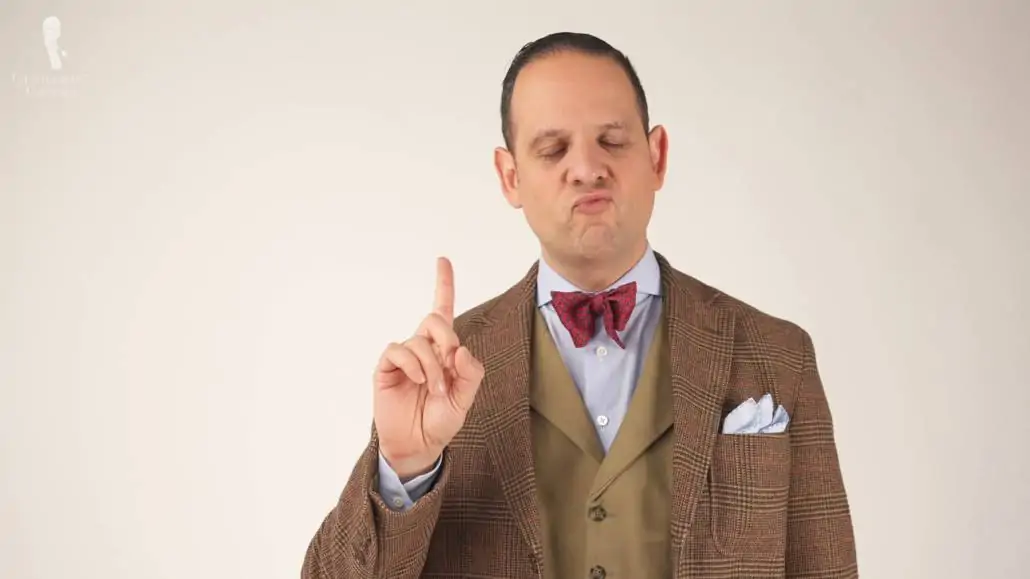
On the flip side, trust yourself to be able to recognize your faults and come up with solutions in order to overcome them. This does require accepting that you will sometimes fail, and being able to forgive yourself for doing so. Remember nobody’s perfect–but, at the same time, we’re not trying to discourage you from recognizing and confronting your personal problems or to simply make excuses for yourself.
Conclusion
You should always strive to be the best individual that you can be, but remember that toxic self-criticism is not the way to get there. In other words, a gentleman should be his own best ally instead of his own worst critic. There are plenty of people in the world who will try to drag you down, but here at the Gentleman’s Gazette, we believe that a gentleman should try to lift people up and that starts with himself.
Online Mental Health Resources
As mentioned, here are some mental health resources you can consult online if you need to look further than the tips we’ve discussed today.
- Checkpoint Global Mental Health Resources
https://checkpointo rg.com/global/ - International Society of Psychiatric-Mental Health Nurses Resources Page
https://www.ispn-psych.org/international-links - National Institute of Mental Health Resources
https://www.nimh.nih.gov/health/find-help/index.shtml - Substance Abuse and Mental Health Services Administration
https://www.samhsa.gov/find-help/national-helpline - National Health Services (UK) Provider Locator
https://www.nhs.uk/service-search/other-services/Mental%20health%20support/LocationSearch/330 - National Health Services (England) Mental Health Emergency Help Locator
https://www.nhs.uk/service-search/mental-health/find-an-urgent-mental-health-helpline - Government of Canada Mental Health Crisis Support
https://www.canada.ca/en/public-health/services/mental-health-services/mental-health-get-help.html - Australian Government Department of Health Mental Health Resources
https://headtohealth.gov.au/
Have you practiced self-assessment or self-care? We’d like to know your techniques, so share with us in the comments!
Outfit Rundown
Today, I’m wearing a relatively casual outfit that might be good for a discussion between friends.
The main element, of course, is my blue cardigan sweater, which is further casualized by the addition of two front pockets. I’m wearing it over a Prince-of-Wales check shirt in blue and yellow on a white ground. The shirt has French cuffs, but I’ve got them configured in a barrel style to better fit under the sleeves of the sweater. I’m also wearing some plain khaki-colored trousers and a pair of tobacco brown suede loafers that are also informal.
My accessories today, both of which are from Fort Belvedere, include a knit tie in yellow and a pair of two-tone shadow striped socks in navy blue and yellow to harmonize with the other elements of the outfit. You can find both the tie and the socks that I’m wearing, in addition to a wide array of other menswear accessories, in the Fort Belvedere shop here.




I took a Dale Carnegie public speaking course about twenty years ago. Of all the terrifying things that people are truly afraid of, public speaking has got to be in the top three. The instructor started by telling us that, contrary to our fears, when someone gets up to speak, everyone in the audience is pulling for them, hoping they’ll succeed. It is a natural reaction to root for someone doing something we ourselves are terrified to do. He was right, I was pulling for all my classmates, as I know they were for me. He also said that at the end of the seven-week course, we would not hesitate to get up and speak, anywhere, anytime. He was right, I look for places I can speak. That is one way to build self-confidence.
This is awesome. Thanks for sharing, Eric!:)
Positive internal dialogue can help a man get over some pretty daunting obstacles. It sounds, or at least sounded rather silly to me at first. But it is very real. Kudos to Gentleman’s Gazette for the focus on a useful tool that is available to us all.
Thank you, Cesare.:)
Then again, there’s the Dunning Kruger effect, and the wisdom of George Carlin’s realization, “think about how stupid the average man is, then realize that half of everybody is stupider than that.” So who’s casting the first stone?